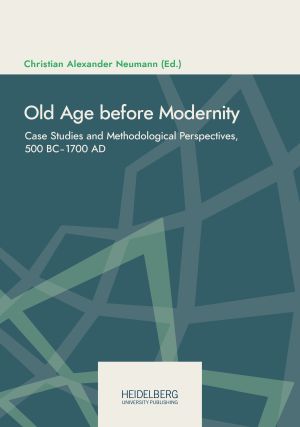Zitationsvorschlag
Lizenz (Kapitel)

Dieses Werk steht unter der Lizenz Creative Commons Namensnennung - Nicht-kommerziell - Keine Bearbeitungen 4.0 International.
Identifier (Buch)
Veröffentlicht
Three Key Longings of Humankind Related to Ageing Seen Through the Lenses of Contemporary Gerontology. Eternal Youth, Immortality, and Wisdom
Abstract Biological, behavioural, and social ageing research is wellestablished as an important and necessary conceptual and empirical substance in ageing science. The current work aims to transcend this now classic biopsychosocial model by making explicit linkages with the humanities, and with history in particular. The chapter commences with input on three key longings of humankind across history as related to ageing, i. e., (1) the striving for eternal youth while getting older, (2) getting older, but having immortality, and (3) becoming wiser with age. Once these longings are described with the aid of a selection of historical examples, they are juxtaposed with key findings and enduring issues in contemporary gerontology. With respect to the longing for eternal youth, research shows that we see increasing lengths of phases characterised by relatively high cognitive and physical functioning in the later human lifespan. Additionally, successful biobehavioural interventions can to some extent be interpreted as serious indications that ageing may be further slowed down in the future. In some contrast to this ‘controlled optimism’ the long for wisdom increasing with age does not seem to be validated by concurrent empirical research. In conclusion, the emerging – rather ambivalent – picture does not confirm any of the longings, but the existing evidence suggests that we have come closer to fulfilling such longings than ever before in history.






